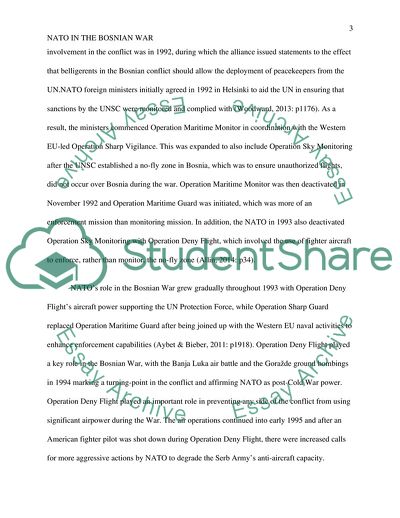Cite this document
(NATO in the Bosnian War Coursework Example | Topics and Well Written Essays - 2750 words, n.d.)
NATO in the Bosnian War Coursework Example | Topics and Well Written Essays - 2750 words. https://studentshare.org/politics/1881690-assessment-of-nato-in-the-bosnian-war
NATO in the Bosnian War Coursework Example | Topics and Well Written Essays - 2750 words. https://studentshare.org/politics/1881690-assessment-of-nato-in-the-bosnian-war
(NATO in the Bosnian War Coursework Example | Topics and Well Written Essays - 2750 Words)
NATO in the Bosnian War Coursework Example | Topics and Well Written Essays - 2750 Words. https://studentshare.org/politics/1881690-assessment-of-nato-in-the-bosnian-war.
NATO in the Bosnian War Coursework Example | Topics and Well Written Essays - 2750 Words. https://studentshare.org/politics/1881690-assessment-of-nato-in-the-bosnian-war.
“NATO in the Bosnian War Coursework Example | Topics and Well Written Essays - 2750 Words”. https://studentshare.org/politics/1881690-assessment-of-nato-in-the-bosnian-war.


